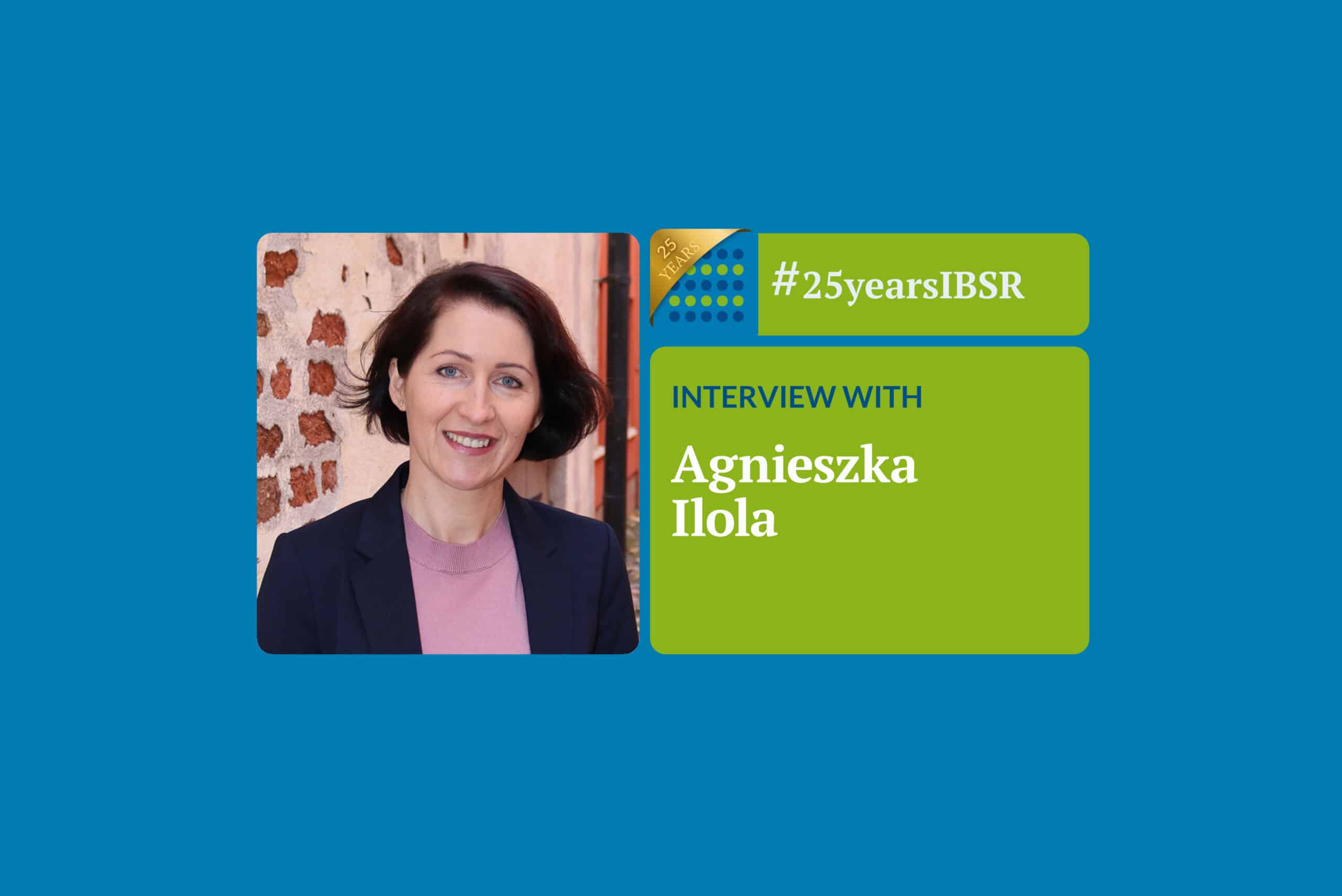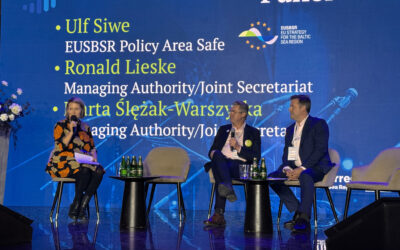
19 April 2023
Creating momentum for sustainable water management
#25yearsIBSR
Anna Gałyga: What is your relation to the Interreg Baltic Sea Region Programme?
As a network, we provide possibilities to cities to discuss, network, and find solutions to their challenges. Interreg Baltic Sea Region has been a very important instrument for us to receive additional resources to either work on concrete challenges or increase peer learning.
How have you benefitted from Interreg Baltic Sea Region?
We’ve benefitted from the Programme in many ways. Thanks to Interreg funding, we were able to provide our member cities with concrete solutions and tools. We created momentum for essential aspects of sustainable water management connected to climate change, for example improving the wastewater and storm water management, reducing water pollution, and increasing the application of circular economy principles.
Although we represent public authorities, we were able to bring in expertise from other organisations, for example, universities, service providers, and the private sector. It gave us a bigger scope of actions and a slightly different angle for the UBC strategic agenda. Projects have also been essential for awareness raising, peer learning, and knowledge sharing among our member cities.
Last but not least is policy input. As we worked closely with pan-Baltic organisations, such as HELCOM (Baltic Marine Environment Protection Commission) and CBSS (Council of the Baltic Sea States), we were able to bring further very concrete messages from those specific topics like water or climate and nutrient recycling.
In this context, which projects would you highlight in particular?
One great example is the BSR Water project platform. We were working on results from seven projects and – together with experts and policymakers – we combined the scientific part with the practical part into policy briefs and regional recommendations. We brought these policy briefs and recommendations on micropollutants, hazardous substances, and proper management of storm water systems to the attention of national decision-making levels. This helped align local and national aims and strive toward one direction.
In IWAMA, we also created an extensive knowledge package for lifelong learning of wastewater plant operators.
What would happen if you didn’t have access to Interreg funding?
I think we wouldn’t be able to address so many challenges or at least address them in such depth. We would probably focus more on networking and sharing already existing solutions. I think we wouldn’t be able to mobilise the resources to develop new solutions. Without Interreg, we would miss all the testing, developing together, and learning by doing – also on mistakes. I believe that the process of developing outputs is often more important than the outputs themselves. Interreg also gave our partners a valuable possibility to assess their own processes and think about how they can do their work smarter and better.
Do you have any special memories related to Interreg?
Every time we visited the pilot sites at wastewater plants, we saw the equipment working well and showing results. It was very heartwarming. It was a milestone for me and started an interesting journey around the Baltic Sea that we continued until now with different topics that we addressed.
Do you have any wishes for the future of the Programme?
I would like to acknowledge what you have already done and the opportunities that the Programme gave us through Interreg funding, support and guidance. Of course, I would like to see this vivid and dynamic cooperation continue and improve. You have already included it in your criteria, but we would like to see new partners and experts cooperating in our region because this is how we can get better and more diverse results. When I look more into topics, we have been very much focusing on horizontal – cross-sectoral, and multi-level – aspects of developed solutions. Although the Programme gives a very concrete framework to work in, perhaps also more horizontal objectives focusing on e.g. climate adaptation could be a way forward.
We could also wish for even more space to exchange between projects of similar topics under the same priority or objectives, in addition to the opportunities given by platforms. I think we could do more together for a bigger voice, e.g. via joint event contribution.
After all those years of working on Interreg projects: what associations with Interreg do you have?
The first thing is cooperation; this is the essence. Then the people because we are like a family now. It’s amazing to work with all the people with the same vision who are inspired to change the region. And when I think more of it, it’s also about trust: trust for my partners, trust in what we do and how we do things together.
#25yearsIBSR
This year, our Interreg Baltic Sea Region Programme is celebrating its 25th anniversary. For more examples of #MadeWithIBSR project results and testimonials of great people who have helped shape the regions with us, visit our birthday celebrations page!
More recent news
D 3.4 Durability plan and transfer report for integration into existing infrastructures
Designing Interreg Baltic Sea Region that belongs to everyone
10 December 2025 Designing Interreg Baltic Sea Region that belongs to everyone Written by Eeva Rantama What if the next Interreg Baltic Sea Region...
Monitoring the Programme’s progress: transnational cooperation in the making
Representatives from nine Programme area countries gathered in Berlin on 19-20 November 2025 to review the progress of the Programme’s implementation and start preparing for the post-2027 period.
Beyond Borders: Turning Interreg Results into Policy Action
At this year’s EUSBSR Annual Forum in Sopot, the session “Beyond Borders: Interreg Results in Action for a Resilient and Safe Baltic Sea Region” showcased how Interreg Baltic Sea Region projects are transforming challenges into policy-relevant results that strengthen resilience, safety, and cooperation across the region. The session brought together project partners, EUSBSR policy area coordinators, members of the Programme Monitoring Committee and young participants to explore what it takes to turn project outcomes into lasting policy impact.





